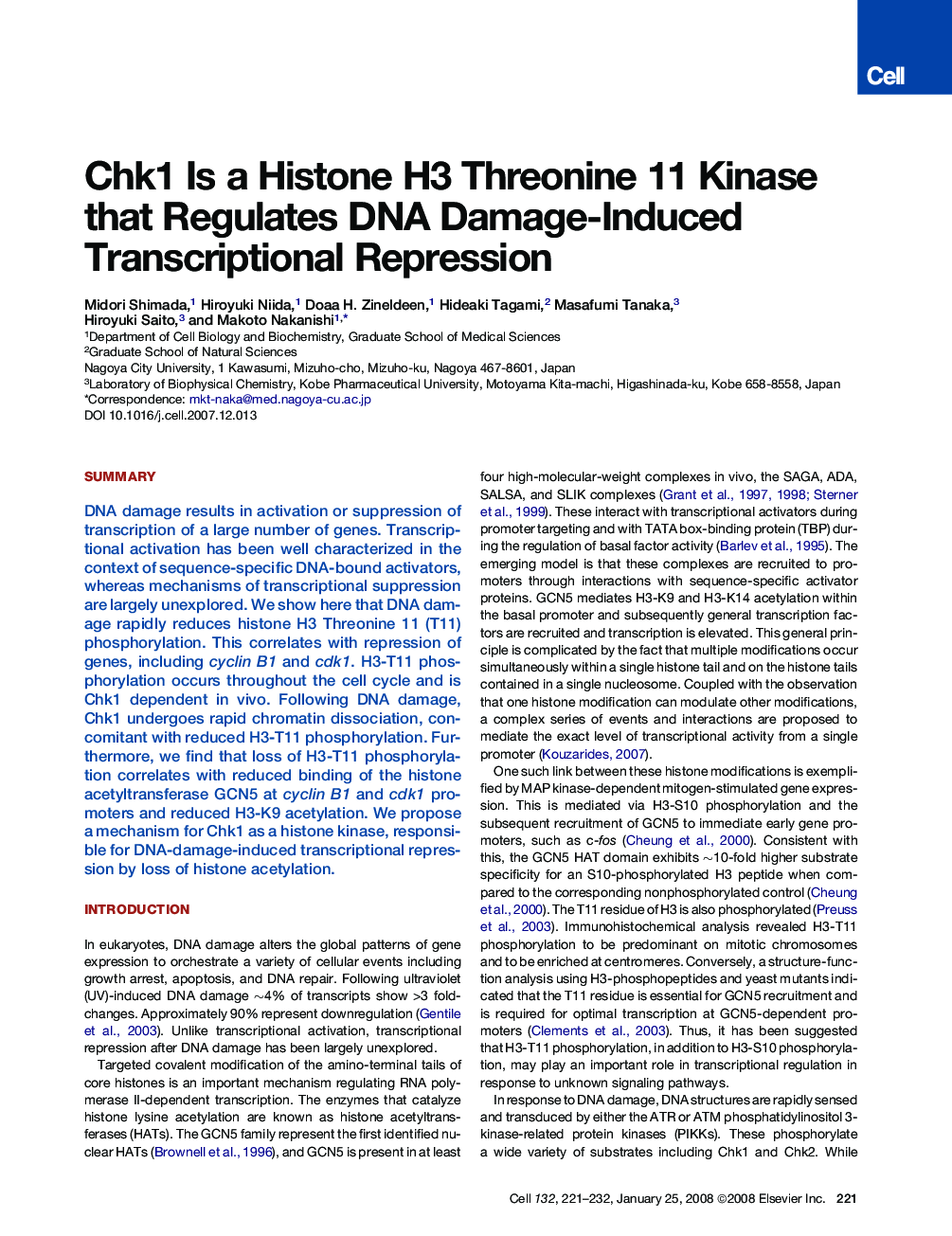| Article ID | Journal | Published Year | Pages | File Type |
|---|---|---|---|---|
| 2037526 | Cell | 2008 | 12 Pages |
SummaryDNA damage results in activation or suppression of transcription of a large number of genes. Transcriptional activation has been well characterized in the context of sequence-specific DNA-bound activators, whereas mechanisms of transcriptional suppression are largely unexplored. We show here that DNA damage rapidly reduces histone H3 Threonine 11 (T11) phosphorylation. This correlates with repression of genes, including cyclin B1 and cdk1. H3-T11 phosphorylation occurs throughout the cell cycle and is Chk1 dependent in vivo. Following DNA damage, Chk1 undergoes rapid chromatin dissociation, concomitant with reduced H3-T11 phosphorylation. Furthermore, we find that loss of H3-T11 phosphorylation correlates with reduced binding of the histone acetyltransferase GCN5 at cyclin B1 and cdk1 promoters and reduced H3-K9 acetylation. We propose a mechanism for Chk1 as a histone kinase, responsible for DNA-damage-induced transcriptional repression by loss of histone acetylation.
